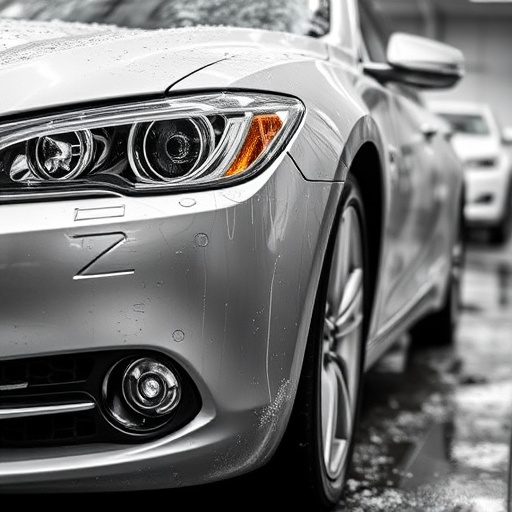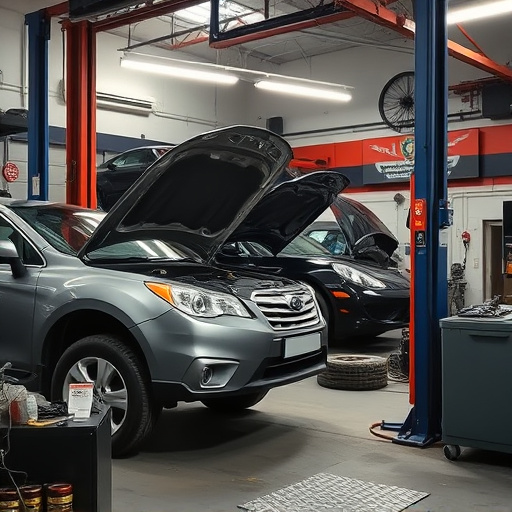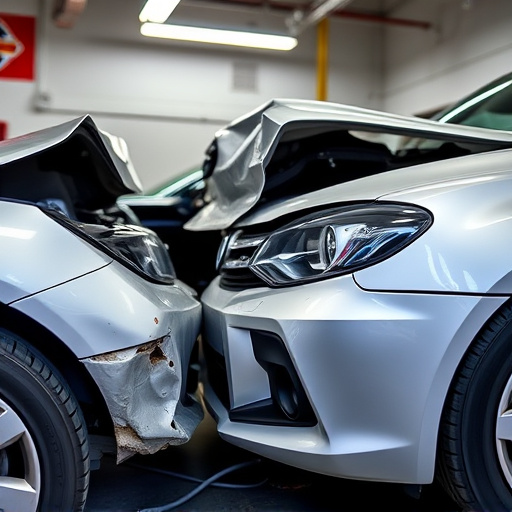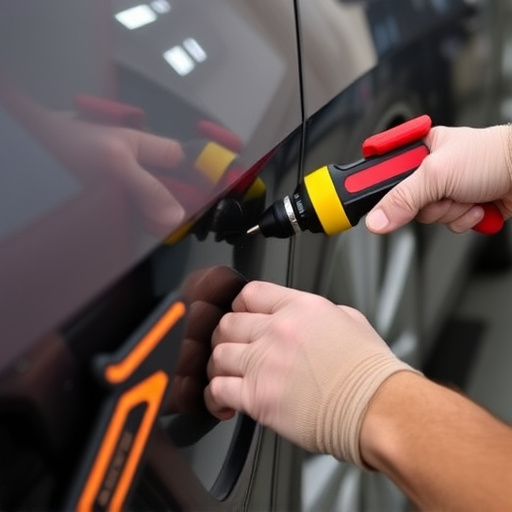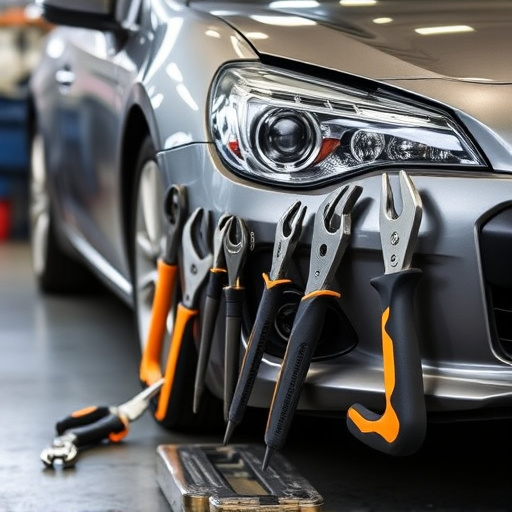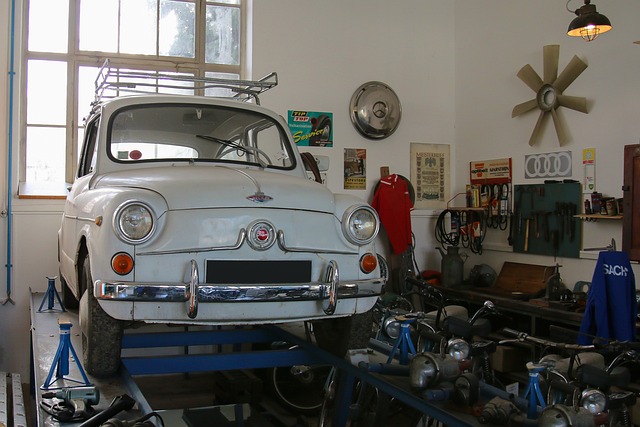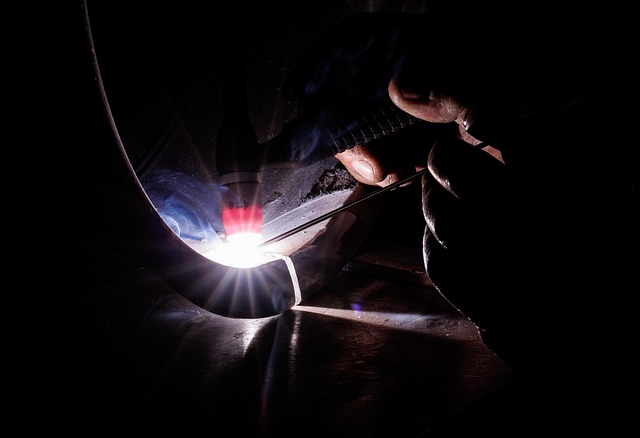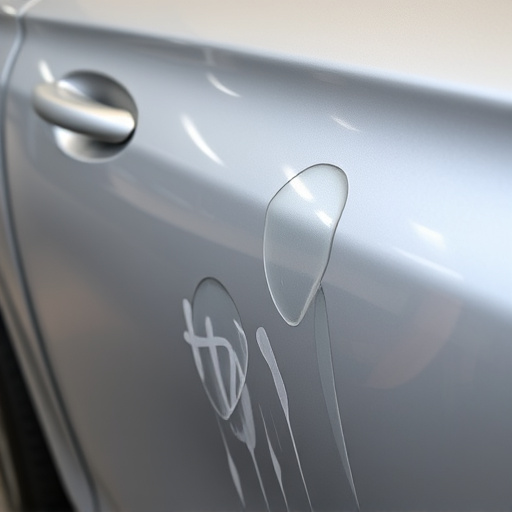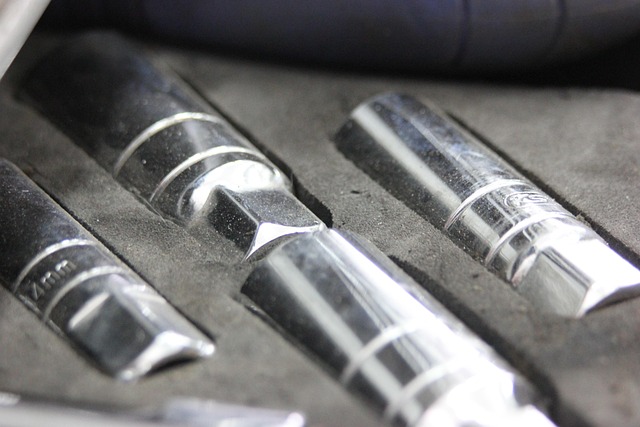Commercial vehicle repair is vital for industries relying on fleets, ensuring safety and efficiency. Complex technologies and accidents necessitate specialized facilities with standardized services like Mercedes Benz repair. These shops offer consistent quality, transparent pricing, and reliable repairs, benefiting businesses and fostering trust. Standardized practices maintain peak fleet condition, reducing breakdowns and promoting safety.
In today’s dynamic business landscape, the reliability of commercial vehicles is paramount. The growing demand for freight and transportation services puts immense pressure on these workhorses, leading to a corresponding rise in the need for expert commercial vehicle repair. This article explores why standardizing commercial vehicle repair services in shops has become crucial. From enhanced safety and efficiency to improved customer satisfaction, embracing specialized repairs benefits both businesses and their clients alike.
- The Growing Need for Commercial Vehicle Repair Expertise
- Standardized Services: Benefits for Shops and Customers Alike
- Ensuring Safety and Efficiency Through Consistent Repairs
The Growing Need for Commercial Vehicle Repair Expertise

In today’s world, commercial vehicles are integral to the smooth functioning of numerous industries, from logistics and transportation to construction and agriculture. As these vehicles become more complex with advanced technologies, the need for specialized commercial vehicle repair expertise has never been more critical. The traditional auto repair shop is no longer sufficient to meet the demands of modern commercial fleets.
The rise in frequency and severity of accidents involving commercial vehicles, including minor fender benders and major collisions, underscores the growing requirement for skilled technicians capable of handling specialized vehicle dent repair and complex mechanical issues. Moreover, as these vehicles age, regular maintenance and upkeep become essential to prevent costly breakdowns. An auto repair shop that caters exclusively to personal vehicles may not possess the necessary tools or training to service heavier commercial vehicles, leading to subpar repairs and potential safety hazards. Therefore, dedicated commercial vehicle repair facilities are becoming a game-changer in ensuring roadworthiness and safety for these vital workhorses on our roads.
Standardized Services: Benefits for Shops and Customers Alike

Standardized services in commercial vehicle repair bring numerous advantages for both shops and their customers. By adopting uniform processes and quality standards, workshops can ensure consistent outcomes for various vehicle makes and models. This standardization simplifies training for employees, as they need only be proficient in a specific set of skills relevant to commercial vehicles. Consequently, it enhances efficiency, reducing the time needed for repairs and increasing productivity.
For customers, standardized services mean clarity and peace of mind. They know exactly what to expect from an auto repair near them, ensuring transparency in pricing and work scope. Furthermore, it promotes trust as shops adhere to set quality measures, guaranteeing reliable car repair services and effective bodywork solutions. This approach benefits businesses relying on their commercial fleet, ensuring their operations remain uninterrupted and cost-efficient.
Ensuring Safety and Efficiency Through Consistent Repairs

Maintaining commercial vehicles in top condition is paramount for businesses to ensure safety and operational efficiency on the road. Consistent and standard commercial vehicle repair practices in shops play a pivotal role in this regard. Regular maintenance checks and prompt repairs not only extend the lifespan of these vehicles but also significantly reduce the risk of breakdowns, which can lead to costly delays and potential accidents.
Shops offering specialized services for Mercedes Benz repair, auto glass replacement, and dent removal, among others, contribute to keeping commercial fleets in optimal shape. By adopting standardized procedures, these shops ensure that every vehicle undergoes thorough inspections and repairs using high-quality parts. This consistency fosters a culture of safety, enabling businesses to rely on their vehicles’ reliability during transportation and delivery operations.
Commercial vehicle repair is no longer an optional service—it’s essential for maintaining safe and efficient transportation. As the demand for specialized knowledge continues to grow, shops that offer standardized commercial vehicle repair services will thrive by providing quality care, ensuring customer satisfaction, and staying ahead in a competitive market. Investing in this expertise is a smart move for any business aiming to support the reliable operation of commercial fleets.

